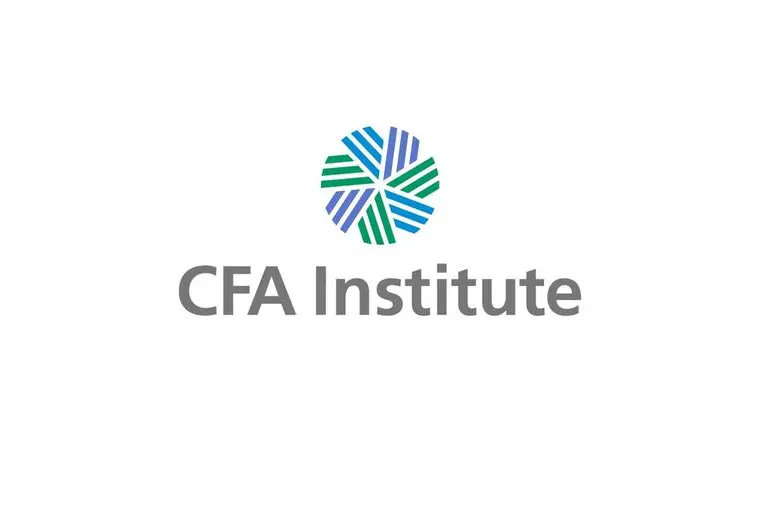PHOTO
In an age dominated by social media connectivity, "finfluencers" wield considerable influence in shaping conversations about finances. As the region undergoes digital transformation, these voices play a crucial role for Generation Z (Gen Z), offering foundational investment concepts, cryptocurrency insights, promotional offers, and supplementing financial knowledge.
Building on this landscape, recent research from CFA Institute delves into Gen Z's engagement with finfluencers, revealing factors such as insufficient financial literacy, limited interaction with regulated advisers, and a preference for digital platforms. With over 27% of finfluencer content sponsored, questions arise about the impact of sponsorship on financial decision-making and information reliability.
Before you immerse yourself in their content, consider these five considerations for financial wisdom, enriched with insights from Nagham Hassan, Founder of Bintcoin and Winner of Gulf Business Crypto Influencer Award 2023.
- Do Your Own Research (DYOR):
Before putting your money into investments, ensure you've invested time in researching the market; neglecting this crucial step can be a recipe for disaster. Base your investment decisions on a foundation of sufficient research and knowledge. Given the prevalence of misinformation, especially on social media platforms, steer clear of relying solely on a single source. Always cross-check information and resist the temptation to invest solely based on the advice of friends, family, or your favorite finfluencer. The key mantra here is always to DYOR - Do Your Own Research.
- Fear Of Missing Out (FOMO):
Don't let your emotions take the reins of your financial decisions. Many financial influencers are algorithm-driven, capitalizing on the saleability of fear, uncertainty, and doubt. Consequently, you'll notice that the thumbnails of most finfluencers' videos emphasize these elements, making the content clickbait-worthy. Playing on people's emotions is a common strategy employed by influencers, so it's essential not to fall prey to it. Much content is centered around encouraging viewers to take immediate action, creating a sense of urgency by suggesting they might miss a once-in-a-lifetime opportunity. However, in most cases, this urgency is unfounded, and there are always opportunities to enter the market. Resist the manipulation of your emotions, prioritize analysis over impulsiveness, and avoid succumbing to FOMO.
- Be Wary of the Shillers:
Being a finfluencer has become a full-time profession for many individuals, serving as their primary source of income. Finfluencers generate income in two main ways: firstly, through streaming revenue and subscriptions, and secondly, through sponsorships and promotions where influencers receive compensation for endorsing specific products or services. This dual income stream can occasionally raise ethical concerns about the authenticity of the content provided by influencers, questioning whether it is genuinely positive or influenced by financial incentives. Individuals should exercise caution and be wary of finfluencers who may be promoting or endorsing certain investments or financial products for personal gain, without providing unbiased or transparent information. Being vigilant about potential conflicts of interest and understanding the motivations behind financial advice is crucial for making well-informed decisions. Always evaluate information from various sources before making financial choices.
- The Magical Crystal Ball:
In the dynamic realm of investment markets, unpredictability, irrationality, manipulation, and unforeseen events are constants. The certainty of market movements eludes even the most seasoned experts, making all content presented by finfluencers speculative in nature. Predictions stem from diverse sources, be it historical data and charts or the intricacies of macroeconomics and geopolitics. It is crucial to bear in mind that finfluencers are essentially navigating through uncertainty, offering their educated guesses based on personal analyses. While their insights may align with market trends on occasion, the inherent risk of miscalculation always exists. Nobody possesses a Magical Crystal Ball, so it is prudent to approach the interpretation of such predictions with caution.
- Beware of Scams and Phony Profiles:
Caution is key when it comes to scam accounts, fraudulent offers, and deep fakes. While it's common to follow financial influencers on social media, a potential red flag is if you receive a follow-back from the influencer, followed by unsolicited chats offering financial services. Be wary of prompts to click on links, share personal information, or send money. In such instances, recognize that you're dealing with a fake account—a decoy rather than the genuine influencer. Never send money to those promising quick returns and unreal dreams. Although not a direct financial wisdom tip, this vigilance won't cost you a penny and can safeguard you from potential financial harm. The alarming rise of scam accounts, phishing, and deep fakes underscores the need for heightened vigilance. Stay alert and be cautious in navigating the digital landscape to avoid falling victim to deceptive practices.
In the pursuit of financial wisdom, the allure of quick, entertaining finfluencer videos often overshadows the time-consuming nature of market research. Living in a world that values short and engaging content, individuals may find it easier to opt for these convenient shortcuts. However, it's essential to grasp that genuine financial wisdom demands a commitment of time – not just in consuming quick content but in engaging in thorough research and education. Becoming financially savvy requires dedicating time to experiment with different strategies and learn from inevitable mistakes. true financial wisdom emerges not from shortcuts but from the dedicated commitment of time to thorough research, education, and the invaluable lessons learned through hands-on experience.
About CFA Institute
CFA Institute is the global association of investment professionals that sets the standard for professional excellence and credentials. The organization is a champion of ethical behavior in investment markets and a respected source of knowledge in the global financial community. Our aim is to create an environment where investors’ interests come first, markets function at their best, and economies grow. There are nearly 200,000 CFA charterholders worldwide in 160 markets. CFA Institute has 10 offices worldwide and 160 local societies. For more information, visit www.cfainstitute.org or follow us on LinkedIn and X at @CFAInstitute.+




















